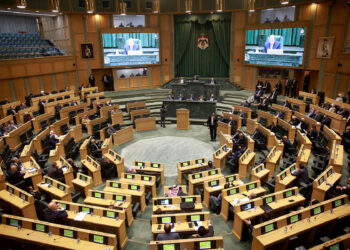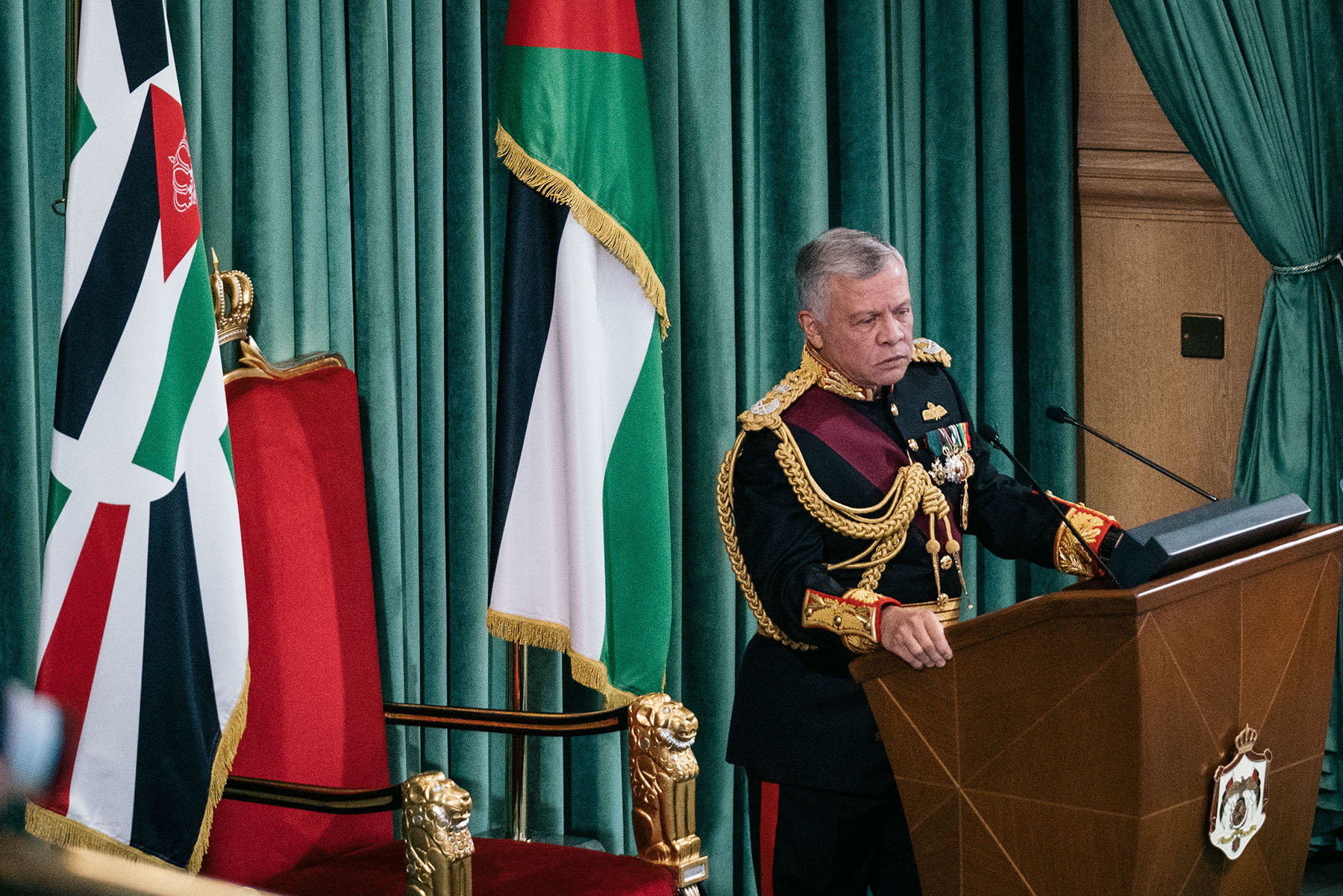Amir Cherif is an Advocacy Intern at DAWN and an undergraduate student at the National Institute for Oriental Languages and Civilization (INALCO) in Paris.
عربي
When President Kais Saied invoked Article 80 of the Tunisian constitution last month to suspend parliament, sack Prime Minister Hisham Mechichi and assume the role of the public prosecutor, sidelining the courts, many Tunisians cheered. Fed up with corruption and the country's deepening economic crisis, they generally saw the move as a bold, even necessary strike against a dysfunctional and crooked political elite.
In the space of a few days, Saied effectively concentrated all legislative, executive and judicial powers in his hands. While Saied's next steps at the time were unclear, it was obvious then that this was a coup. It's even more apparent today, after Saied by decree Monday indefinitely extended the 30-day "exceptional" period set by the constitution, keeping parliament suspended until further notice. The announcement came at midnight in a post on the Tunisian presidency's Facebook page.
The international community needs to stop pretending Saied's coup isn't one. Many countries, including the United States, hedged after July 25 and issued waffling statements that suggested they were waiting to see what the former constitutional law professor did next. Now, after claiming his coup was constitutional, Saied has ignored his own deadline to end the freeze of parliament after 30 days, under Article 80 of the constitution, which is supposed to "guarantee, as soon as possible, a return to the normal functioning of state institutions and services."
Saied invoked Article 80, which "in the event of imminent danger threatening the nation's institutions or the security or independence of the country, and hampering the normal functioning of the state," allows the president to take "any necessary measures necessitated by the exceptional circumstances, after consultation with the Head of Government and the Speaker of the Assembly of the Representatives of the People and informing the President of the Constitutional Court." Since Tunisia's parliament has failed since 2014 to agree on appointing the members to the Constitutional Court, which would define what measures are appropriate, no one has the constitutional authority or legitimacy to restrict the president's actions.
It was obvious then that this was a coup. It's even more apparent today, after Saied indefinitely extended the 30-day "exceptional" period set by the constitution, keeping parliament suspended until further notice.
- Amir Cherif and Elie Salem
Even those who are not calling it a coup, however, agree that Saied's interpretation of the constitution strains credibility and that his consolidation of power isn't constitutional. Indeed, as Article 80 explicitly states, "The President of the Republic cannot dissolve the Assembly of the Representatives of the People."
Saied's early moves signal that this was a personal power grab. When Saied lifted parliamentary immunity, corrupt lawmakers were not immediately targeted, as most Tunisians hoped. Instead, the first target was a conspicuous political opponent of Saied, independent MP Yassine Ayari, who had criticized his "coup against the whole constitution." Ayari was sentenced to two months in jail over a 2018 charge—"participating in an act aimed at destroying the morale of the army"—stemming from Facebook posts in which he criticized the military. That charge was frequently used to arrest critics and dissidents in the oppressive, 24-year regime of Zine El Abidine Ben Ali. It was an ominous sign.
Even the sacking of Prime Minister Mechichi was done with a dictatorial flourish. According to Middle East Eye, thugs purportedly under the supervision of Egypt's security forces—dispatched to Tunisia by President Abdel-Fattah el-Sisi to advise Saied before his coup—beat Mechichi inside the Tunisian presidential palace the night before the prime minister agreed to resign. While Mechichi himself denied the report, his failure to show his face anywhere in public for more than a week and refusal to meet with the National Commission for the Prevention of Torture, an independent oversight authority elected by parliament, speak for themselves.
In the months leading up to his coup, Saied had also intensified contacts with the region's leading autocrats, including Sisi and Emirati Crown Prince Mohammed bin Zayed, culminating with a state visit to Egypt in April. Saied's coup may have been months in the making, according to previous reporting, and it isn't hard to imagine that Saied even spoke with Sisi of his plans during his visit to Cairo.
Yet for nearly a month now, the coup has been met with quiet consternation from Tunisia's Western partners. Italian, American and German diplomats all urged a return to the constitutional order, though they have avoided harsh condemnation of Saied. Italy and the United States in particular fear another escalation in the civil war in neighboring Libya, where Tunisia is a crucial mediator. Germany, for its part, views instability as a risk for the investments it made in Tunisia since the 2011 revolution. France, which has a special relationship with Tunisia stemming from its colonial rule, remains publicly supportive of Saied, though it has been urging a return to democratic norms, especially the "rapid" appointment of a new prime minister—but that was in late July.
The international community needs to stop pretending Saied's coup isn't one.
- Amir Cherif and Elie Salem
Perhaps more importantly, Saied lacks support from political elites in Tunis as he huddles inside the presidential palace in Carthage. Major institutional players, such as unions, have all avoided endorsing the coup, including the lawyers and judges unions, and more importantly, the Tunisian General Labor Union, one of the dominant political forces in the country. The business elite, too, are wary of his economic stance. They know he will not pursue the neoliberal reforms undertaken since the start of the Ben Ali era in the 1980s, which successive governments continued after the revolution in 2011.
Saied knows that the coup is popular primarily because the political class was seen as inept in solving Tunisia's staggering economic crisis. Rapid progress on that front will help solidify his popularity. To that effect, he announced on Aug. 2 that he was in contact with "friendly nations" to cut the country's deep financial deficit. Saudi Arabia just pledged to provide an unspecified amount of economic assistance to Tunisia, following a visit to Tunis by Saudi State Minister for African Affairs Ahmed Abdul Aziz Kattan, who met with Saied. The United Arab Emirates and Egypt, which have both backed the coup, would also likely be interested in providing financial support for certain political concessions.
While Tunisians and the international community can quibble over whether Saied will use his powers for good, his refusal to publish a political roadmap or offer any information on a new government, parliament, elections or even political dialogue make it abundantly clear that this is not just a "situation in Tunisia"—as the State Department so delicately put it—but a brazen coup. Saied's late-night decree to indefinitely extend the suspension of parliament and the rest of his power grab should remove any doubt. It's time for the United States to call this what it is.
![]()































![Security forces loyal to the interim Syrian government stand guard at a checkpoint previously held by supporters of deposed president Bashar al-Assad, in the town of Hmeimim, in the coastal province of Latakia, on March 11, 2025. Syria's new authorities announced on March 10, the end of an operation against loyalists of deposed president Bashar al-Assad, after a war monitor reported more than 1,000 civilians killed in the worst violence since his overthrow. The Syrian Observatory for Human Rights said the overwhelming majority of the 1,068 civilians killed since March 6, were members of the Alawite minority who were executed by the security forces or allied groups. (Photo by OMAR HAJ KADOUR / AFP) / “The erroneous mention[s] appearing in the metadata of this photo by OMAR HAJ KADOUR has been modified in AFP systems in the following manner: [Hmeimim] instead of [Ayn Shiqaq]. Please immediately remove the erroneous mention[s] from all your online services and delete it (them) from your servers. If you have been authorized by AFP to distribute it (them) to third parties, please ensure that the same actions are carried out by them. Failure to promptly comply with these instructions will entail liability on your part for any continued or post notification usage. Therefore we thank you very much for all your attention and prompt action. We are sorry for the inconvenience this notification may cause and remain at your disposal for any further information you may require.”](https://dawnmena.org/wp-content/uploads/2025/04/syria-22039885951-360x180.jpg)






